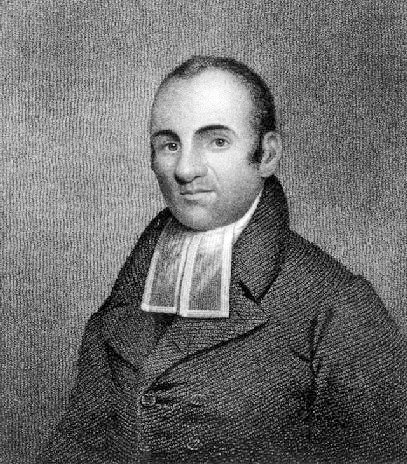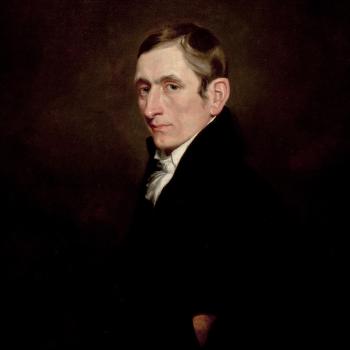When Thomas Jefferson wrote the Declaration of Independence, the implications of “all men are created equal” for America’s slaves was uncertain, at least to the delegates to the Continental Congress, many of whom (like Jefferson) owned slaves themselves. There was no doubt about the Declaration’s meaning to many free and enslaved African Americans, however. Lemuel Haynes was a former indentured servant, a Massachusetts minuteman and Continental soldier, and a Calvinist evangelical who was born to a white woman and African-American man. He wrote “Liberty Further Extended” (1776), one of the most remarkable documents of the Revolutionary era, as a direct response to Jefferson’s Declaration, which Haynes quoted on the first page of the treatise. In it, he made a soaring Christian case for the abolition of slavery.
Like many antislavery critics, Haynes used Acts 17:26, “[God] hath made of one blood all nations of men” (KJV), as the basis for his argument that the principles of liberty applied to people of all races. Jefferson opened the door to this argument in the Declaration by basing human equality on our common creation by God. “Liberty is equally as precious to a black man, as it is to a white one, and bondage equally as intolerable to the one as it is to the other,” Haynes reasoned. He railed against the hypocrisy and violence of slave owning and the slave trade in a supposedly Christian land, asking “what will you do in that day when God shall make inquisition for blood? He will make you drink the vials of his indignation which like a potable stream shall be poured out without the least mixture of mercy.”
Sometime around the beginning of the Revolution Haynes had experienced an evangelical conversion, and then fell under the tutelage of “New Divinity” pastors, Calvinist theological successors of Jonathan Edwards. “Liberty Further Extended,” though unpublished, was likely encouraged by and circulated among some of those pastors. In 1785 Haynes received ordination, and for three decades he served white-majority churches in Vermont, before finally leaving his congregation in 1818, probably due to factionalism exacerbated by his precarious position as a black pastor of a white church. He died in 1833, with his epitaph reading “Here lies the dust of a poor hell-deserving sinner, who ventured into eternity trusting wholly on the merits of Christ for salvation.”
Certain scholars and pastors have known about and admired Haynes for some time (I briefly discuss Haynes in my books God of Liberty and The Great Awakening), but he has not achieved anything like the kind of fame claimed by his predecessors Jonathan Edwards or George Whitefield. Because of Haynes’ remarkable career, and his trenchant criticism of slavery, he deserves that kind of notoriety among Calvinists and evangelicals today.
More resources on Haynes:
Excerpt from “Liberty Further Extended”; full text (subscription) in William and Mary Quarterly.
John Saillant, Black Puritan, Black Republican is the standard scholarly biography of Haynes.
Thabiti Anyabwile, May We Meet in the Heavenly World: The Piety of Lemuel Haynes offers a Reformed perspective on Haynes, and selections from his writings.
Free at Google Books, the 1837 Sketches of the Life and Character of the Rev. Lemuel Haynes.
Friends, I have recently started a Thomas S. Kidd newsletter. Each newsletter will update you on what’s happening in the world of American religious and political history. It will contain unique material available only to subscribers, and each will help you keep up with my blog posts, books, and other writings from around the web. [Your e-mail information will never be shared.] If you’re interested, you can sign up here.












